3rd ACM Computer Science in Cars Symposium (CSCS 2019)
FUTURE CHALLENGES IN ARTIFICIAL INTELLIGENCE & SECURITY FOR AUTONOMOUS VEHICLES
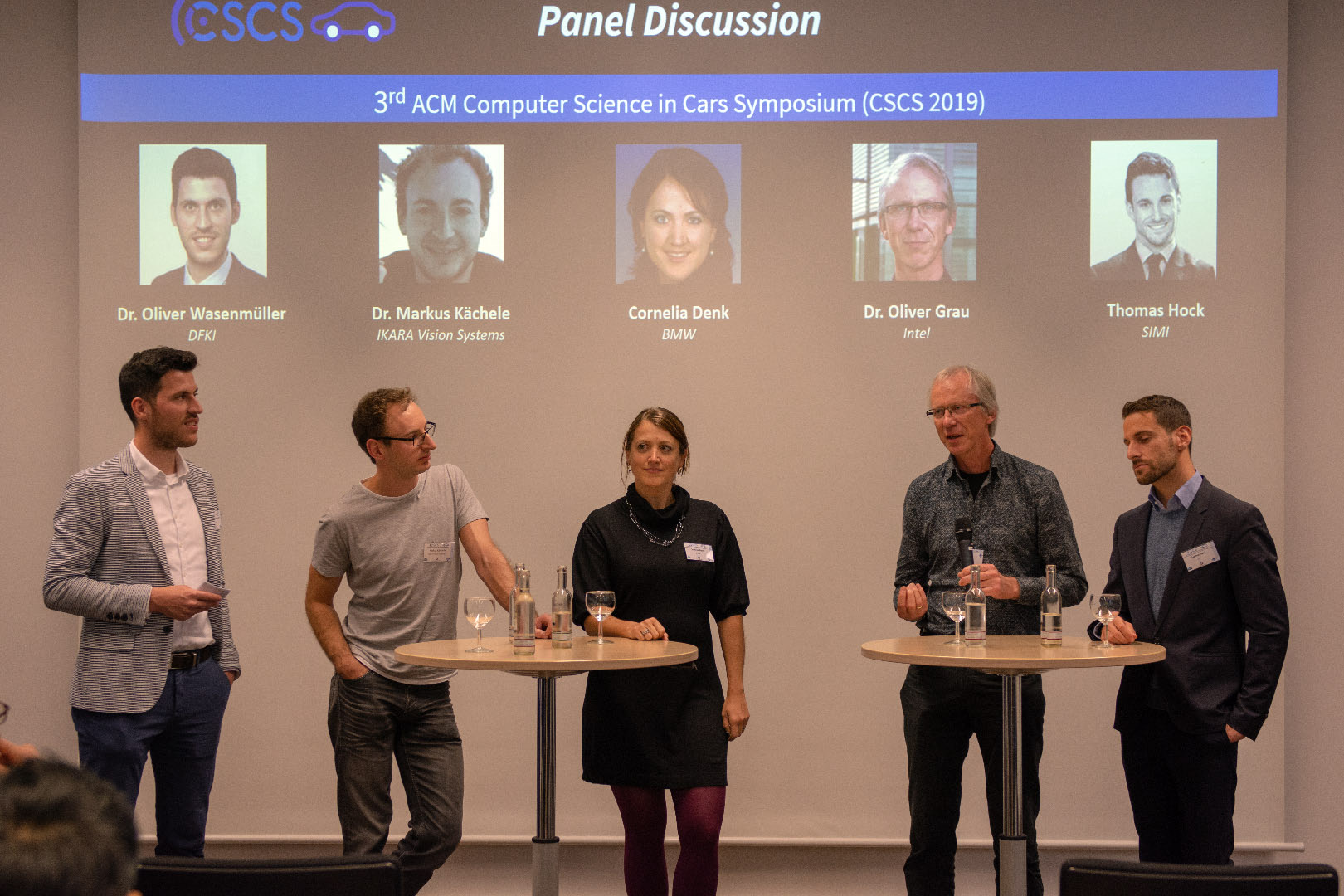
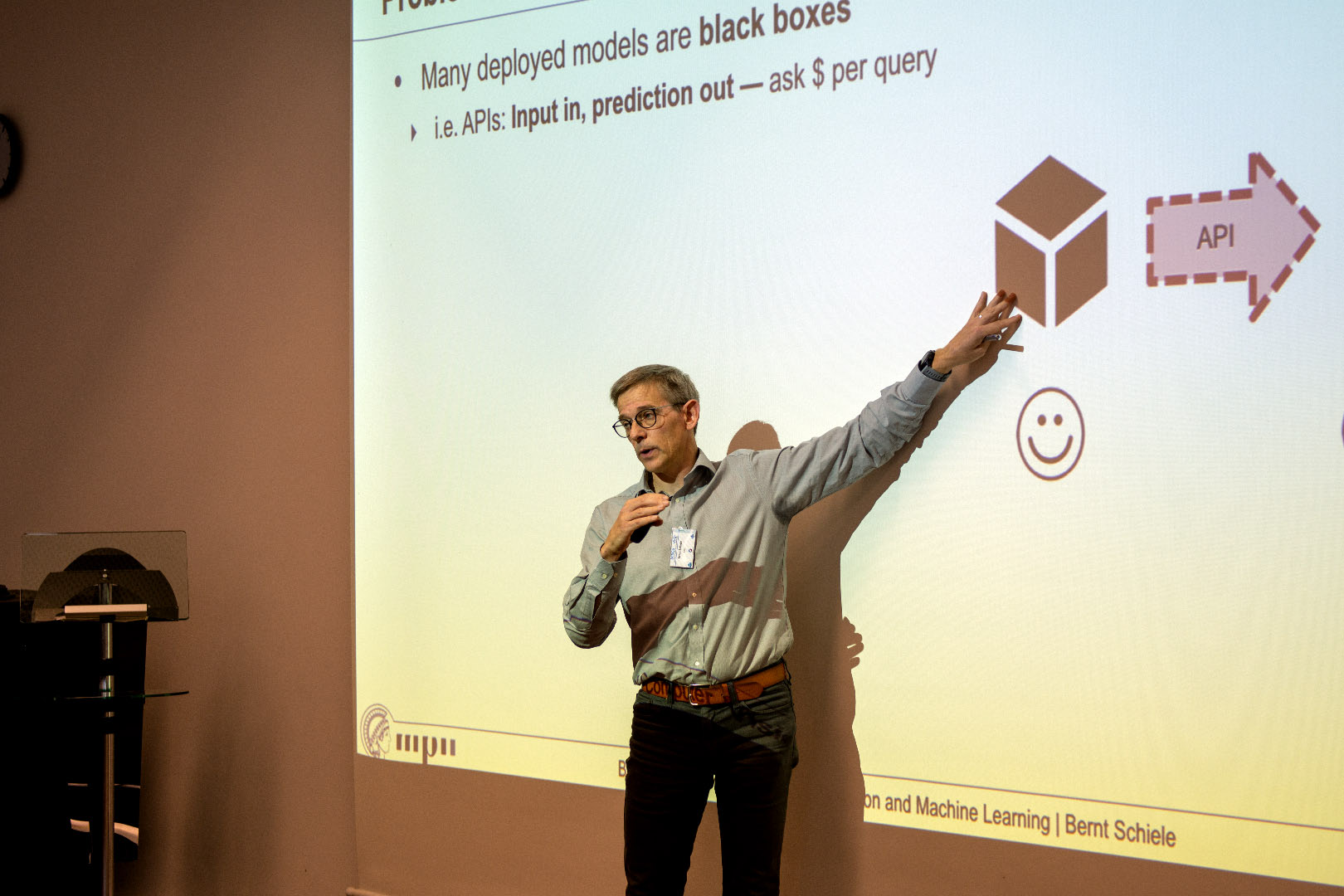
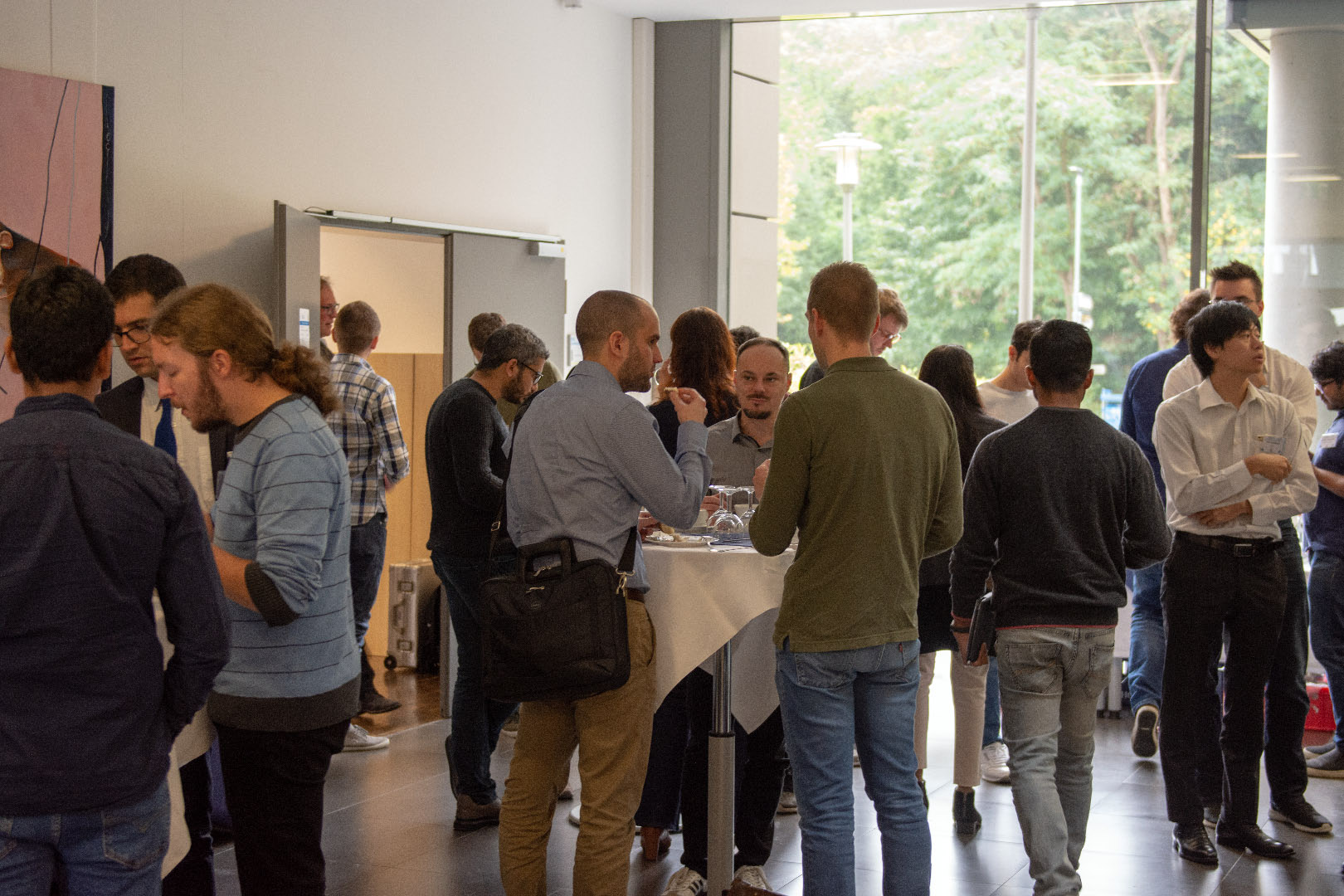
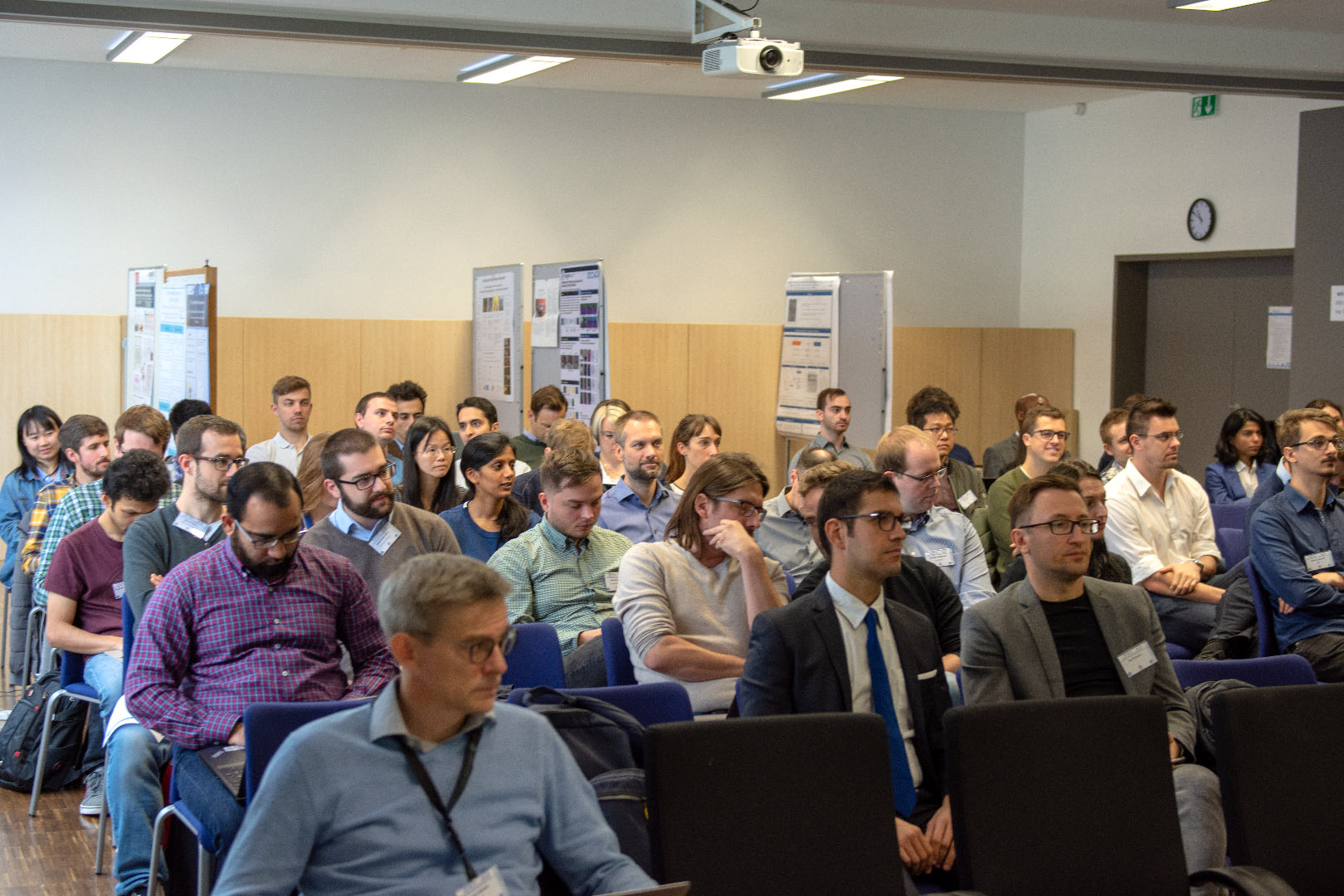
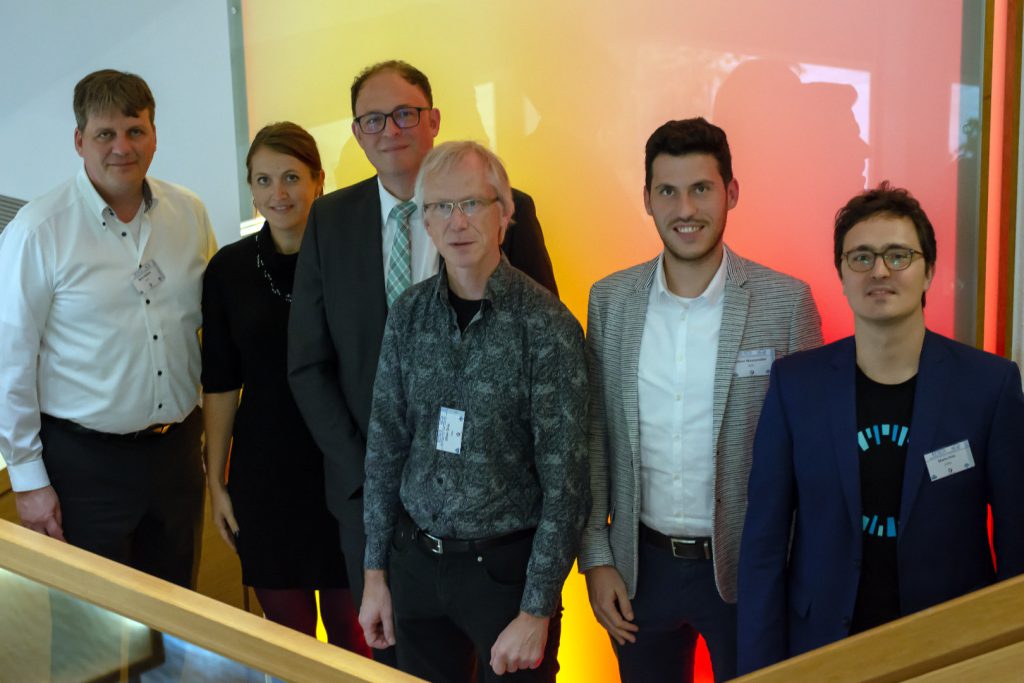
Scope:
Industry, as well as academia, have made great advances working towards an overall vision of fully autonomous driving. Despite the success stories, great challenges still lie ahead of us to make this grand vision come true. On the one hand, future systems have to be yet more capable to perceive, reason and act in complex real-world scenarios. On the other hand, these future systems have to comply with our expectations for robustness, security, and safety. ACM, as the world’s largest computing society, addresses these challenges with the ACM Computer Science in Cars Symposium. This conference provides a platform for industry and academia to exchange ideas and meet these future challenges jointly. The focus of the 2019 conference lies on AI & Security for Autonomous Vehicles. Contributions centered on these topics are invited.
Topics:
Submission of contributions are invited in (but not limited to) the follow key areas:
- Artificial Intelligence in Autonomous Systems: Sensing, perception & interaction are key challenges — inside and outside the vehicle. Despite the great progress, complex real-world data still poses great challenges towards reliable recognition and analysis in a large range of operation conditions. Latest Machine Learning and in particular Deep Learning techniques have resulted in high performance approaches that have shown impressive results on real-world data. Yet these techniques lack core requirements like interpretability.
- Automotive Security for Autonomous driving: Autonomous cars will increase the attack surface of a car as they not only make decisions based on sensor information but also use information transmitted by other cars and infrastructure. Connected autonomous cars, together with the infrastructure and the backend systems of the OEM, constitute an extremely complex system, a so- called Automotive Cyber System. Ensuring the security of this system poses challenges for automotive software development, secure Car-to-x communication, security testing, as well as system and security engineering. Moreover, security of sensed information becomes another important aspect in a machine learning environment. Privacy enhancing technologies are another issue in automotive security, enforced by legislation, e.g., the EU General Data Protection Regulation. For widespread deployment in real-world conditions, guarantees on robustness and resilience to malicious attacks are key issues.
- Evaluation & Testing: In order to deploy systems for autonomous and/or assisted driving in the real-world, testing and evaluation is key. Giving realistic and sound estimates – even in rare corner cases – is challenging. A combination of analytic as well as empirical methods is required
Program
| 08:45–09:00 AM | Opening |
| 09:00–10:00 AM | Keynote: Jörn Eichler (FU Berlin and Volkswagen AG) |
| 10:00 AM | Break |
| 10:30–11:30 AM | Full Paper Session: AI, Evaluation and Testing
|
| 11:30 | Lunch |
| 12:30 PM | Keynote: Bernt Schiele (Max Planck Institute for Informatics) |
| 1:30 PM | Extended Abstract Session: Spotlights
|
| 2:30pm | Break & Poster Session (Full Papers & Extended Abstracts) |
| 3:45pm | Full Paper Session: Security
|
| 4:45pm | Keynote: Oliver Wasenmüller (DKFI) |
| 5:15pm | Panel Discussion |
| 6:00pm | Closing & Get Together |
All dates are UTC+1 / CET
Keynote Speakers
-
Jörn Eichler, FU Berlin and Volkswagen AG
-
Bernt Schiele, Max Planck Institute for Informatics
-
Oliver Wasenmüller, DKFI
Conference Committee
General Chair
- Hans-Joachim Hof, Technical University of Ingolstadt, German Chapter of the ACM
Program Chairs
-
Mario Fritz, Helmholtz Center for Information Security (CISPA)
-
Christoph Krauß, Fraunhofer Institute for Secure Information Technology (SIT)
-
Oliver Wasenmüller, German Research Center for Artificial Intelligence (DFKI)
Organizing Committee
-
Bjoern Bruecher, Intel
-
Cornelia Denk, BMW, ACM SIGGRAPH Munich
-
Mario Fritz, Helmholtz Center for Information Security (CISPA)
-
Oliver Grau, Intel, ACM Europe Council
-
Hans-Joachim Hof, Technical University of Ingolstadt, German Chapter of the ACM
-
Oliver Wasenmüller, DFKI Kaiserslautern
Confirmed Program Committee
-
Zeynep Akata, University of Amsterdam
-
Bjoern Andres, University of Tübingen, Bosch Center for AI
-
Apratim Bhattacharyya, Max Planck Institute for Informatics
-
Chih-Hong Cheng, FORTISS
-
Markus Enzweiler, Daimler R&D
-
Flavio Garcia, University of Birmingham
-
Fabian Hüger, Volkswagen Group Research
-
Dieter Hutter, DFKI
-
Frank Kargl, Universität Ulm
-
Stefan Katzenbeisser, Uni Passau
-
Dennis Kengo Oka, Synopsys
-
Stefan Milz, Valeo
-
H. Gregor Molter, Porsche AG
-
Stefan Nuernberger, CISPA
-
Shervin Raafatnia, Bosch
-
Qing Rao, BMW Group
-
Bernt Schiele, Max Planck Institute for Informatics
-
Joachim Sicking, Fraunhofer IAIS
-
Timo van Roermund, NXP
-
André Weimerskirch, Lear Corporation
-
Shanshan Zhang, Nanjing University of Science and Technology
Thank you to our valued Sponsors



